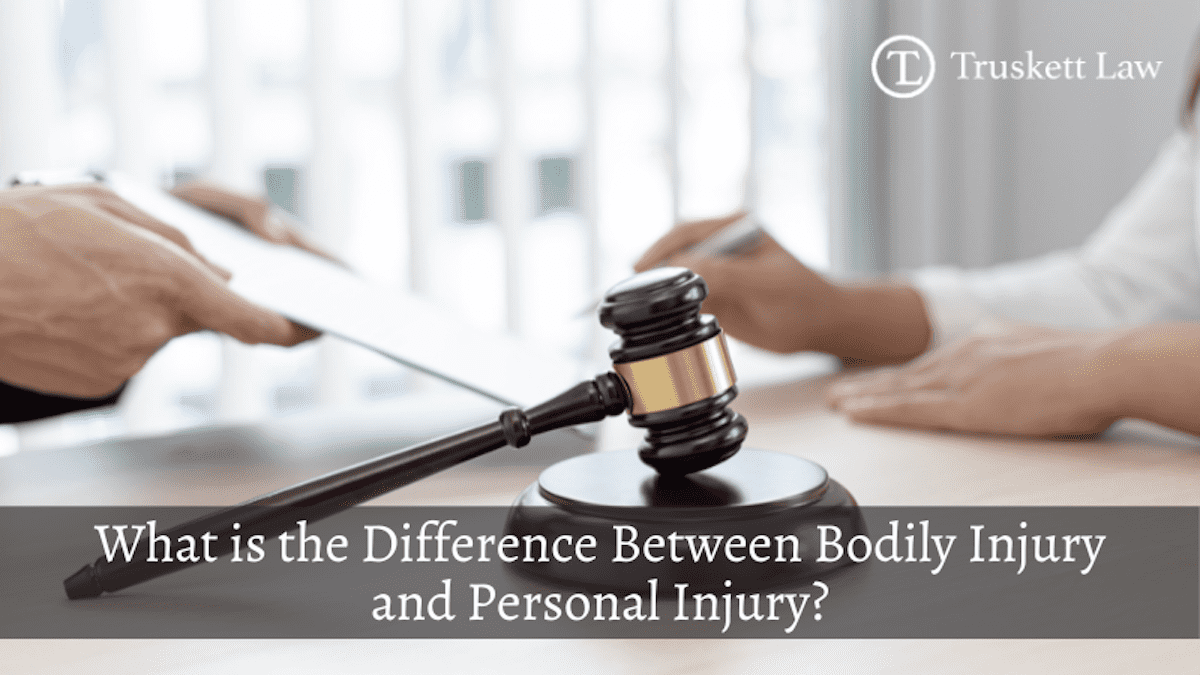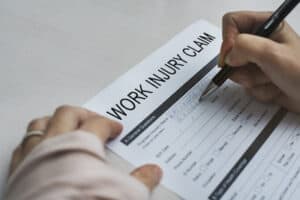
27 Jun What is the Difference Between Bodily Injury and Personal Injury?
Bodily Injury vs. Personal Injury
If you have suffered either bodily injury or personal injury as a result of someone else’s negligence, it is important to speak with an experienced personal injury attorney who can help you understand your rights and options.
So, what is the difference between bodily injury and personal injury? First, bodily injury is typically defined as any physical harm that is caused to another person’s body, while personal injury can encompass both physical and emotional damage.
If you have suffered either bodily injury or personal injury as a result of someone else’s negligence, it is important to speak with an experienced personal injury attorney who can help you understand your rights and options.
Second, bodily injury generally requires medical treatment to heal, while personal injury may not always require professional medical care.
Finally, bodily injury damages are typically quantifiable in terms of medical bills and lost wages, while personal injury damages can be more difficult to calculate.
Keep reading to learn more about the differences between these types of cases.
What Is Bodily Injury?
Bodily injury refers to any physical harm that befalls a person. This could include anything from a minor cut or bruise to a major injury such as a broken bone.
What Is Personal Injury?
There are many different types of personal injury accidents, but some of the most common include car accidents, slip, and fall accidents, and medical malpractice.
If you have been the victim of a personal injury, it is important to speak with an experienced personal injury attorney who can help you understand your rights and options.
Differences Between Personal Injury and Bodily Injury
 There are a few key differences between bodily injury and personal injury. Bodily injury generally refers to physical harm that is caused by another person or entity.
There are a few key differences between bodily injury and personal injury. Bodily injury generally refers to physical harm that is caused by another person or entity.
This can include things like broken bones, cuts, bruises, and disfigurement.
Personal injury, on the other hand, is a type of injury that is not necessarily physical. It can encompass things like emotional distress, mental anguish, and financial loss.
First, bodily injury is usually more apparent than personal injury. This is because bodily injuries are typically physical, while personal injuries can be more psychological or emotional.
Second, bodily injury generally results in some sort of physical pain or suffering, while personal injury may not. Finally, personal injury can often be more difficult to prove than bodily injury, as it may not be as apparent to others.
Personal Injury Accidents
Many different types of accidents can lead to personal injury. Here are some of the most common:
Car accidents: Car accidents are one of the most common types of personal injury accidents. They can be caused by a variety of factors, including distracted driving, drunk driving, and poor road conditions.
Workplace accidents: Workplace accidents can occur in any type of workplace, from construction sites to office buildings. They can be caused by a variety of factors, including unsafe work conditions, lack of safety training, and employee negligence.
Slip and fall accidents: Slip and fall accidents are often caused by hazardous conditions on someone else’s property, such as wet floors, icy sidewalks, or cluttered walkways.
Product liability accidents: Product liability accidents occur when a person is injured by a defective or dangerous product. These accidents can be caused by a variety of factors, including manufacturing defects, design defects, and inadequate warnings or instructions.
Animal attacks: Animal attacks can occur anywhere, but are most common in rural areas where there are more wild animals. They can be caused by a variety of factors, including aggressive behavior, lack of supervision, and pool fencing.
Bodily Injury Accidents
 One of the most common types of body injury accidents is a slip and fall accident.
One of the most common types of body injury accidents is a slip and fall accident.
These accidents can occur anywhere but are especially common in places where there is water or other liquids on the floor.
They can also occur when there are uneven surfaces or obstacles in the way.
Another common type of body injury accident is a car accident. These accidents can be caused by a variety of factors, but often occur because of driver error or negligence.
In some cases, body injury accidents are caused by defective products. If a product is not properly made or does not work correctly, it can cause serious injuries to the person using it.
Finally, sometimes body injury accidents are caused by the actions of another person. If someone intentionally harms another person, they can be held liable for the injuries that they cause.
No matter how a body injury accident occurs, it is important to seek medical attention as soon as possible. In some cases, the injuries sustained in an accident can be very serious and even life-threatening.
If you have been injured in an accident, it is important to contact an experienced personal injury lawyer who can help you get the compensation you deserve.
Discuss Your Case With A Lawyer
 There are a few things you’ll want to discuss with your lawyer if you’ve been the victim of personal or bodily injury.
There are a few things you’ll want to discuss with your lawyer if you’ve been the victim of personal or bodily injury.
First, you’ll want to go over the details of the accident or incident that caused your injuries.
Your lawyer will need to know as much as possible about what happened to best represent you.
You’ll also want to discuss the extent of your injuries and any medical treatment you’ve received or are currently receiving. Your lawyer will need to know this information to determine what kind of compensation you may be entitled to.
Finally, you’ll want to talk about your legal options and what course of action your lawyer recommends taking. Your lawyer will be able to advise you on the best way to proceed to get the compensation you deserve.
Steps For Personal Injury Claim
If you’ve been injured in an accident, there are certain steps you should take to ensure that you receive the compensation you deserve. Here are 10 important steps to take after a personal injury:
- Seek medical attention immediately. This is important for two reasons. First, you need to document your injuries and get a proper diagnosis. Second, you need to begin treatment as soon as possible to ensure a full recovery.
- Take pictures of the accident scene and your injuries. This documentation will be important when filing a personal injury claim.
- Get the contact information of any witnesses to the accident. Their testimony could be crucial in proving your case.
- Do not give a recorded statement to the insurance company. Anything you say could be used against you later.
- Hire an experienced personal injury attorney. An attorney will know how to deal with the insurance company and get you the maximum compensation possible.
- Keep track of all your medical expenses, including doctor’s visits, prescriptions, and hospital stays. You will need to provide this documentation to your attorney.
- Keep a journal detailing how your injuries have affected your life. This can be important in demonstrating the extent of your damages.
- Do not post anything about your accident or injuries on social media. Insurance companies will often try to use anything you post against you.
- Be patient. Personal injury cases can often take months or even years to resolve.
- Follow your attorney’s advice. He or she is the expert in these matters and knows what is best for your case.
Concerns Regarding Personal or Bodily Injury
- Make sure you are physically okay: If you have been involved in an accident, it is important to make sure that you are not seriously injured. Seek medical attention if necessary.
- Gather information about the accident: Get the contact information of any witnesses, take photos of the scene, and write down your account of what happened. This will be important later when filing a personal injury claim.
- Contact a personal injury lawyer: An experienced lawyer will be able to help you navigate the legal process and maximize your chances of getting compensation for your injuries.
- Be careful of what you say: It is important to be careful about what you say to insurance companies and other parties involved in the accident. You should always speak to a lawyer before giving any statements.
- Keep track of your expenses: Keep track of any medical bills, lost wages, or other expenses that have resulted from the accident. This documentation will be important when filing a personal injury claim.
- Be patient: The process of filing a personal injury claim can be long and frustrating. It is important to be patient and work with your lawyer to ensure that you get the best possible outcome.
In conclusion, I trust this article has provided you with helpful information about how to know the differences between personal injury and bodily injury.


Sorry, the comment form is closed at this time.